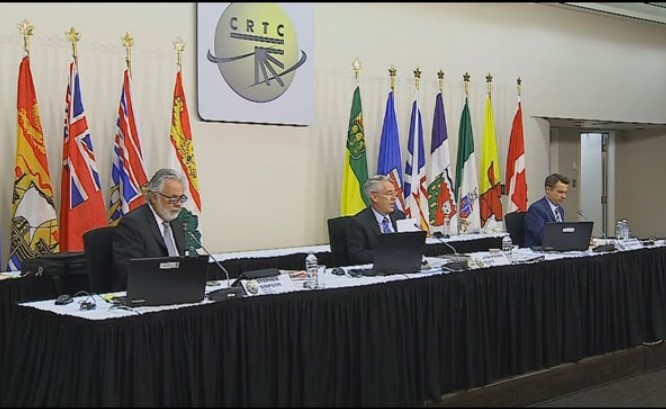
Time for government to speed up appointments
GATINEAU – CRTC chairman Jean-Pierre Blais quietly asked the federal government for help during last week’s public hearing into skinny basic cable and flexible channel packaging. Simply, he needs more commissioners.
After the opening statements by Vidéotron (which was a group dominated by women and all of whom are bilingual Francophones, headed up by CEO Manon Brouillette), Blais, speaking in French, said he was “jealous” of the diversity looking back at him. The CRTC commissioners beside Blais were B.C. and Yukon commissioner Stephen Simpson and Atlantic Region and Nunavut commissioner Christopher MacDonald.
However, it has been over 10 months since the vice-chair broadcasting job came open and, has been reported, the Ontario commissioner position was vacated in June.
Before the 2015 federal election, the former Conservative government let some commissioners leave and simply named no replacements, nor listed those open jobs. While the CRTC can have up to 13 commissioners, the former government wanted to whittle that number down. Officials then often pointed to the FCC in the States, which runs with five commissioners.
The challenge here is CRTC policy says that any decision on the Quebec market must be made with no fewer than three Francophones on a commission panel. With just Blais and Quebec commissioner Yves Dupras, nothing can be decided there and a radio hearing which had been scheduled for last year has been put off indefinitely. A hearing into a new station in Quebec City can’t start.
The chair also mentioned that as of January, if nothing changes, “he will have only one” woman commissioner. Manitoba and Saskatchewan commissioner Candice Molnar’s tenure is due to end January 6, 2017, leaving recently appointed Linda Vennard, commissioner of Alberta and NWT, as the lone woman.
With the length of time decisions take, Molnar, unless she is renewed, will not be able to sit on the panels of the two hearings this fall because decisions will not come back prior to the end of her tenure.
While a change in government delays everything administrative in Ottawa as the transition happens, these holes need to be filled more quickly than has been happening – especially the vice-chair position. That job opening was finally posted on June 29th and it is known in Ottawa that the federal government is having trouble finding what it thinks to be a suitable candidate (Sources have told us they are hoping to hire a Francophone woman for the job – potentially someone who might be able to be promoted to chair, when Blais leaves the post, which may or may not happen in 2017).
Also, the Liberal government has been adamant about having more women in leadership roles in government and leaving just a single one as a commissioner doesn’t appear on the face of it like something the Governor-in-Council would want to do.
“I’m sure that the new government will nominate new commissioners,” said Blais in French during the hearing.
But until that happens, the CRTC can decide nothing in Quebec and has a paucity of women commissioners making policy decisions.




